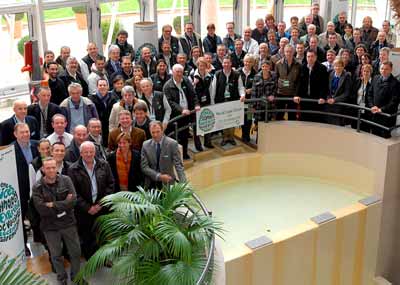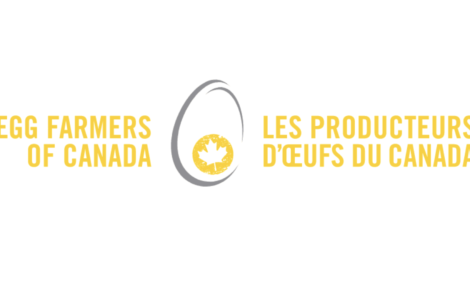



Merial Presents Solutions to Europe's Egg Industry Challenges
FRANCE - More than 80 participants from Latvia to South Africa braved the cold winter weather to attend the Merial Layer Forum for two days in November 2010 in the fine French city of Lyon. They celebrated the launch of Merial's 'Programme+ Layer' and also learnt more about the current issues challenging egg producers."The key point of Programme+ Layer," explained Dr Thomas Zwercher, Avian Marketing Director for Merial's Europe Middle East and Africa region, "is that the Company has brought together, in three essential and interconnected parts, its full expertise composed of Vaccines, Vaccination Technology and Vaccination Services."
- High-quality poultry vaccines developed to protect against the most common avian pathologies at each stage of the egg production chain.
- A custom-designed range of vaccination equipment from hatchery to field adapted to each specific vaccine application based on spray and injection methods
- First-class vaccination services through vaccination technology experts with over 15 years in vaccine application at hatchery and field level, as well as a pool of leading poultry experts with both R&D and field experience fighting against present and future diseases, through the development of vaccination programmes tailored to suit specific situations
"Who else can put so much into an egg?" asked Dr Zwercher, repeating the slogan for Merial's new Programme+ Layer campaign.
Summing up, he said: "The aim of Programme+ Layer is to implement the ad-hoc solution, ensuring sanitary conditions in layer flocks."
The programme for the Merial Layer Forum covered the challenges currently facing the European egg industry, as well as a range of the Company's solutions to help vets and farmers face those challenges. Véronique Gonnier of the French National committee for the promotion of eggs, CNPO, said that the biggest challenge for the European egg industry comes in 2012, when changes in the welfare regulations mean an end to all conventional battery cages. She also showed how much more costly it is to produce one kilo of eggs in the EU than in other countries where labour and feed costs are cheaper and the environmental and food safety rules are less onerous.
Dr Francesco Prandini of Merial outlined the main infectious pathogens in the egg industry, starting in the perinatal period, through rearing and throughout the laying period. Symptoms may be respiratory, enteric, neoplastic or affect the immune response but almost all the diseases reduce egg production and/or egg quality, he said.
Continuing on the theme of diagnosis, Dr Giovanni Tosi explained the activities of his laboratory at IZSLER, the Public Institute of Animal Disease Control covering the regions of Lombardy and Emilia-
Romagna in Italy. 80 per cent of the Forli lab work is on poultry, with samples submitted by official authorities (surveillance programme for avian influenza, Salmonella, etc) as well as poultry companies.
The leader of the Salmonella Reference Lab of the Veterinary Laboratories Agency (VLA) in the UK, Dr Rob Davies, stressed the importance of eliminating rodents in the control of Salmonella on-farm, presenting an overview of results from a number of cage, barn and free-range farms from which 126 houses were completely cleared of Salmonella – during the laying period – by concerted mouse control measures.
Last but by no means least in its Layer Forum, Merial presented its solutions to the challenges of the European egg industry. Dr Sjaak de Wit of the GD Deventer in the Netherlands presented the latest news on the control of infectious bursal disease virus (IBDV), based on his field trial results. From his studies, he concluded that Merial's VAXXITEK HVT + IBD was 100 per cent effective against a challenge with the vvIBDV D6948 strain and with a high level of safety, as shown by the absence of bursal lesions and by good body weights. He stressed the importance of regular monitoring of both vaccination take and field viruses in the future control of IBD.
An ad-hoc inactivated range of vaccines was described by Dr Francois-Xavier Le Gros, who leads the R&D team on avian vaccines for Merial. He described the company's Gallimune vaccine range for commercial pullets with its 0.3-ml dose of low viscosity emulsion, that was designed to achieve high efficacy standards combined with improved safety and syringeability. He explained that efficacy has been thoroughly checked by challenge during the laying period and that batch-to-batch consistency and QC guarantee to protect flocks against natural challenges when used with the recommended protocol.
Drawing together the benefits of Merial's new Programme+ Layer, participants at the Layer Forum were shown how to optimise the benefits of the Company's vaccines. Dr Prandini outlined the Merial's vaccine range, while Ludovic Porcher, VT Manager EMEA, described the Company's vaccine technology machines and associated services.












